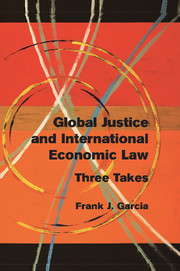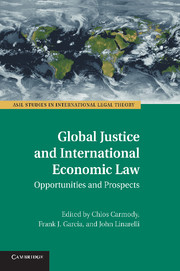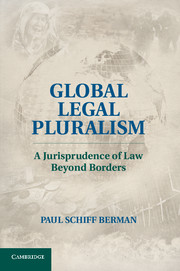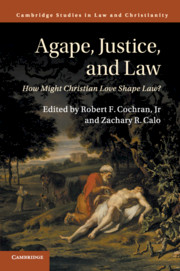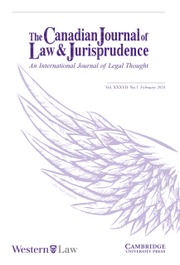Global Justice and International Economic Law
Three Takes
- Author: Frank J. Garcia, Boston College School of Law
- Date Published: February 2015
- availability: Available
- format: Paperback
- isbn: 9781107502741
Paperback
Other available formats:
Hardback, eBook
Looking for an examination copy?
This title is not currently available for examination. However, if you are interested in the title for your course we can consider offering an examination copy. To register your interest please contact [email protected] providing details of the course you are teaching.
-
For centuries, international trade has been seen as essential to the wealth and power of nations, and defended as a system through which all could benefit. It is only recently that trade's problematic role as an engine of distributive justice has begun to be understood, due in part to globalization and the global justice debates. In this compelling new book, international legal scholar Frank J. Garcia proposes a radically new way to evaluate, construct, and manage international trade – one that is based on norms of economic justice as well as comparative advantage and national interest. This book examines three different ways to conceptualize the problem of trade and global justice – three “takes” on this relationship – drawn from Rawlsian liberalism, communitarianism, and consent theory. These three approaches illustrate specific issues of a general or systematic importance to the way global justice has been theorized. Through these takes the book offers an alternative, pluralistic mode of arguing for global justice, and highlights the unique modes of discourse we employ when engaging with global justice and their implications for how we conceptualize and argue the problem. From this analysis, Garcia suggests a new direction for trade agreements built around the possibility of truly consensual trade negotiations and the kind of international economic system they would structure.
Read more- Suggests a comparative approach to global justice theory
- Explores the unique types of discourse we employ for talking about justice
- Proposes a new kind of trade agreement built around fully consensual negotiations
Reviews & endorsements
"It is the rare scholar who can write lucidly and compellingly about Rawls, Kant, cosmopolitanism, contractarianism, and international economic law all in the same breath. Frank Garcia pulls it off and makes a genuine contribution to a pluralist conception of global justice by working through universal concepts in both language and law."
--Anne-Marie Slaughter, Princeton University, Director of Policy Planning, U.S. Department of State, 2009-2011See more reviews"The relationship between international economic law and global justice is surely one of the most crucial - but least studied - questions posed by globalization. With this important volume, legal scholar Frank Garcia steps into this scholarly void. Garcia draws upon moral theory and political philosophy to develop a strikingly original understanding of the nature and possibilities of international economic law. Professor Garcia skillfully avoids the pitfalls associated with other efforts to theorize global justice, and provides valuable insights into how best to advance toward this fundamental, if elusive, goal."
--Jeffrey L. Dunoff, Laura H. Carnell Professor of Law and Director, Institute for International Law & Public Policy, Temple University Beasley School of Law"Global justice is not just an optional extra for economic globalization. It is the very measure by which globalization’s success is gauged and its failures condemned. Or at least it should be. By meticulously examining the various ways we think about global justice Frank Garcia’s enlightening and elegant arguments show that too often the concept is ignored or its meaning twisted, when it desperately needs to be better understood and invoked if the benefits of the global economy are to be fairly exploited and its injustices minimized."
--David Kinley, Chair in Human Rights Law, The University of SydneyCustomer reviews
Not yet reviewed
Be the first to review
Review was not posted due to profanity
×Product details
- Date Published: February 2015
- format: Paperback
- isbn: 9781107502741
- length: 362 pages
- dimensions: 229 x 152 x 19 mm
- weight: 0.49kg
- availability: Available
Table of Contents
1. International justice, or global justice as the foreign policy of liberal states
2. Globalization and the possibility of a global community of justice
3. Global justice as consensual exchange: consent, oppression, and the nature of trade itself.
Sorry, this resource is locked
Please register or sign in to request access. If you are having problems accessing these resources please email [email protected]
Register Sign in» Proceed
You are now leaving the Cambridge University Press website. Your eBook purchase and download will be completed by our partner www.ebooks.com. Please see the permission section of the www.ebooks.com catalogue page for details of the print & copy limits on our eBooks.
Continue ×Are you sure you want to delete your account?
This cannot be undone.
Thank you for your feedback which will help us improve our service.
If you requested a response, we will make sure to get back to you shortly.
×
